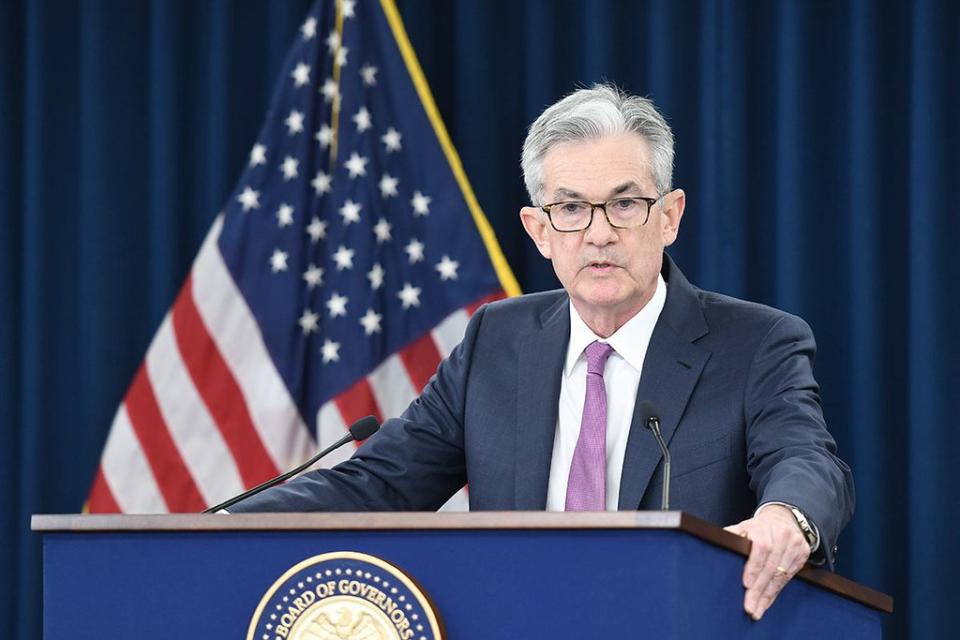Why Your Savings Accounts May Soon Pay Less Interest
Confused about what the Fed decision on interest rates means for you? Here's what you need to know.

Image source: Federal Reserve.
Headlines in recent days have been full of speculation about whether or not the Federal Reserve plans to lower the federal funds rate. You might hear this news and think it has nothing to do with your personal finances. But the interest rates set by the Fed affect consumers in many ways, from the interest rate set by your credit card company to the cost of taking out a home or auto loan.
Federal Reserve chair Jerome Powell recently indicated that the Fed is considering cutting interest rates at a meeting later this month. The Fed generally lowers the interest rate when the economy is weak, making it cheaper to borrow money so Americans will make more big purchases such as homes and cars. When the economy recovers, the Fed then raises the interest rate, increasing the return on savings and investments for borrowers and helping to control inflation. Current uncertainty over trade policy is driving fears of an economic downturn, which is why the Fed is considering lowering rates right now.
The interest rate set by the Fed serves as a benchmark for the cost of borrowing money for the entire financial industry, so if the Fed does lower rates, consumers will also see a decrease in the interest they earn on money held in savings accounts.
The total interest you earn on savings in a year is known as your annual percentage yield (APY). While many traditional banks' average APYs are as low as 0.08%, online savings accounts have been growing in popularity because of their higher-than-average payouts, with APYs reaching up to 2.3%. These rates have been climbing steadily in recent years as the Fed has raised the interest rate from historic post-recession lows, but if the Fed reverses this trend and lowers federal rates, your APY could start falling, too.
In fact, I recently received an email from my own online savings account saying just this. After receiving an APY of 2.2% for the last several months, I was notified that my bank would soon lower my APY to 2.1%, specifically because of the potential decline in federal interest rates.
While a lower APY does mean you're earning a little less interest, it's important to note that interest rates change in very small increments, and many people won't notice these changes at all. In fact, my bank noted that this change in interest rate means for every $1,000 in my account, I'm earning just $1 less in interest each year. Interest rates for online savings accounts are still likely to earn you more than 20 times the rate of traditional banks, as most online banks are still offering APYs over 2%.
Ultimately, if you want your money to grow at a faster rate, you need to take advantage of investment accounts that can earn even greater returns than a bank account. For example, a brokerage or a money market account might offer you much greater returns, especially if you use a tax-advantaged account made for saving for retirement or your children’s education.
Still, with the Fed decision in the news, it's a good time to review the fine print on any of your accounts -- from savings accounts to credit cards to variable loans -- and make sure you understand the interest you're either earning or paying. Understanding these terms can help you ensure your money is still working for you.
The Motley Fool owns and recommends MasterCard and Visa, and recommends American Express. We’re firm believers in the Golden Rule. If we wouldn’t recommend an offer to a close family member, we wouldn’t recommend it on The Ascent either. Our number one goal is helping people find the best offers to improve their finances. That is why editorial opinions are ours alone and have not been previously reviewed, approved, or endorsed by included advertisers. Editorial content from The Ascent is separate from The Motley Fool editorial content and is created by a different analyst team.

 Yahoo Finance
Yahoo Finance 